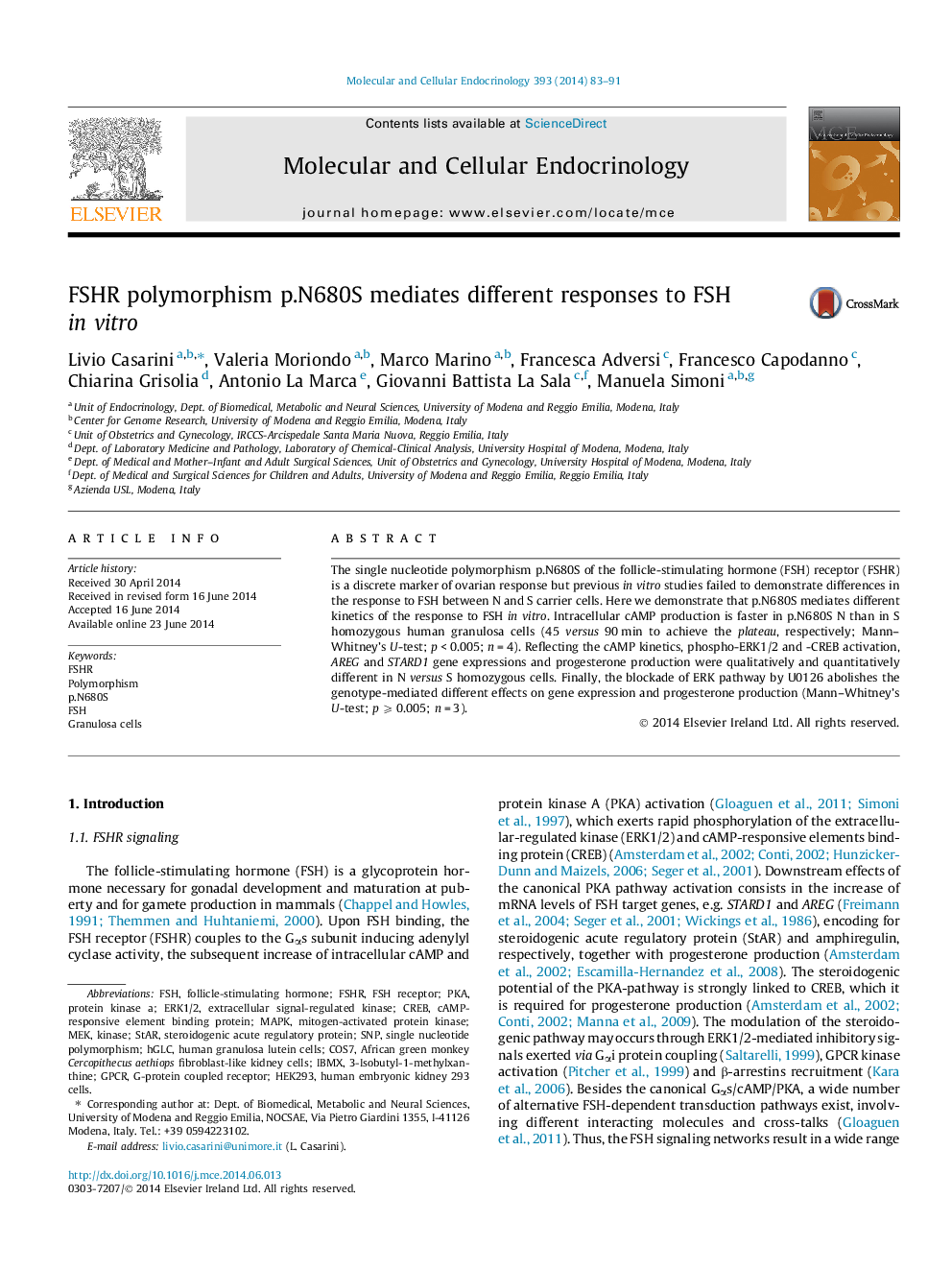| Article ID | Journal | Published Year | Pages | File Type |
|---|---|---|---|---|
| 8477155 | Molecular and Cellular Endocrinology | 2014 | 9 Pages |
Abstract
The single nucleotide polymorphism p.N680S of the follicle-stimulating hormone (FSH) receptor (FSHR) is a discrete marker of ovarian response but previous in vitro studies failed to demonstrate differences in the response to FSH between N and S carrier cells. Here we demonstrate that p.N680S mediates different kinetics of the response to FSH in vitro. Intracellular cAMP production is faster in p.N680S N than in S homozygous human granulosa cells (45 versus 90 min to achieve the plateau, respectively; Mann-Whitney's U-test; p < 0.005; n = 4). Reflecting the cAMP kinetics, phospho-ERK1/2 and -CREB activation, AREG and STARD1 gene expressions and progesterone production were qualitatively and quantitatively different in N versus S homozygous cells. Finally, the blockade of ERK pathway by U0126 abolishes the genotype-mediated different effects on gene expression and progesterone production (Mann-Whitney's U-test; p ⩾ 0.005; n = 3).
Keywords
COS7GPCRCREBHEK293FSHRpKaIBMX3-isobutyl-1-methylxanthineERK1/2G-protein coupled receptorMAPKStarhuman embryonic kidney 293 cellsgranulosa cellsMEKfollicle-stimulating hormoneFSHcAMP-responsive element binding proteinSteroidogenic acute regulatory proteinprotein kinase Amitogen-activated protein kinasePolymorphismSingle nucleotide polymorphismSNPKinaseextracellular signal-regulated kinaseFSH receptor
Related Topics
Life Sciences
Biochemistry, Genetics and Molecular Biology
Cell Biology
Authors
Livio Casarini, Valeria Moriondo, Marco Marino, Francesca Adversi, Francesco Capodanno, Chiarina Grisolia, Antonio La Marca, Giovanni Battista La Sala, Manuela Simoni,
